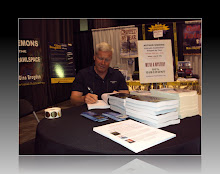
The International Standard Book Number (ISBN) is a 10-digit number that uniquely identifies books and book-like products published internationally. The number identifies a title, or an edition of one, and allows booksellers, libraries, and book wholesalers and distributors an efficient way to market books.
The ISBN consists of ten digits, divided into four parts, each separated by a hyphen. It is unique to the book to which it is assigned, identifying it as: large print, trade paper, hardcover, audio CD, downloadable audio, Kindle e-book, Sony e-reader, etc. Without an ISBN, book stores, especially online, would not know what the customer is actually ordering.
If your book has an ISBN, make sure you get it listed in BIP (Books In Print). R.R. Bowker runs the US ISBN Agency. It licenses BIPs to Barnes & Noble, Borders, libraries, and the top three search engines. Without an ISBN, your book will not automatically appear in searches like Google. Then you're left to your own devices, your own marketing expertise, to get your book out to the people.
The ISBN consists of ten digits, divided into four parts, each separated by a hyphen. It is unique to the book to which it is assigned, identifying it as: large print, trade paper, hardcover, audio CD, downloadable audio, Kindle e-book, Sony e-reader, etc. Without an ISBN, book stores, especially online, would not know what the customer is actually ordering.
If your book has an ISBN, make sure you get it listed in BIP (Books In Print). R.R. Bowker runs the US ISBN Agency. It licenses BIPs to Barnes & Noble, Borders, libraries, and the top three search engines. Without an ISBN, your book will not automatically appear in searches like Google. Then you're left to your own devices, your own marketing expertise, to get your book out to the people.
ISBNs are a gateway to marketing; not having one is like knocking on a door and getting no answer.



No comments:
Post a Comment